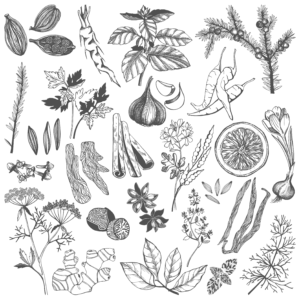For many nonprofits, the state of charitable giving was fairly strong going into the COVID-19 pandemic. But as millions of people found themselves unemployed this spring and summer, their proverbial purse strings also tightened, significantly reducing their charitable activities. As a result, many charities—especially those in the medical research field—now face dramatically reduced research budgets. What does this mean for the future of cancer research initiatives and progress?
Dr. Tiosha Bailey, executive director of Komen Chicago, says that within the nonprofit sector—where dollars raised work to support cancer research—there is a growing concern about research funding shrinking at a time when clinical trials and general research are needed more than ever.
“Cancer remains one of the deadliest diseases worldwide and is the second leading cause of death in the US,” Bailey says. “Research helps develop more effective treatments and also helps us understand how to prevent cancer as well as diagnose it earlier.”
While the COVID-19 virus has certainly impacted fundraising and programming efforts in the fight against cancer, Michael Ziener, executive director at the American Cancer Society of Illinois (ACS), says cancer itself hasn’t stopped. And neither will the American Cancer Society. “We must continue our mission, and we plan to serve those who need us the most: our cancer patients,” Ziener says.
However, as Ziener explains, the pandemic has put the American Cancer Society’s annual research efforts and fundraising goals in a critical light.
Research helps develop more effective treatments and helps us understand how to preve diagnose it earlier.
-Dr. Tiosha Bailey, executive director of Komen Chicago
“ACS is forecasting a $200 million drop in revenue from $724 million as of 2020-Q1,” says Ziener. “Naturally, if current trends continue, our leadership team has indicated we might have to temporarily cut research funds in half. This creates a cancer research funding crisis. Our cancer researchers still need funds for treatment and prevention studies. To attack cancer from every angle and help find life-saving answers, ACS’s research efforts must continue to be robust. We simply cannot afford to reduce our lab investigations in strength or power.”
As the pandemic has slowed down economic activity, many cancer patients are also worried about access to affordable care. “And then there’s limited access to onsite labs by researchers, staff and administration,” Ziener says. “Some research is [being done] remotely, which has been an adjustment and a challenge. And again, if the pandemic continues to affect our fundraising revenue, we may have to cut research funding by 50 percent.”
Similar to many other nonprofits, Susan G. Komen has also seen an overall decline in contributions. In an effort to address immediate needs in the community and offset the decline in revenue, the organization also created a COVID-19 Action Fund to support the growing need for breast health services.
“It is crucial that organizations get creative and continue to innovate during this time,” Bailey says. “We are meeting people where they are at—at home.”
As a result, Komen Chicago has made the decision to reschedule three of its largest fundraisers, and two have since gone virtual. In May, they hosted a virtual advocacy day. They also are hosting a virtual Metastatic Breast Cancer Conference on August 21 and a virtual Race for the Cure on October 24.
It is crucial that organizations get creative and continue to innovate during this time.
“These virtual events will ensure that the necessary dollars needed to continue Komen’s lifesaving breast health programs are secured,” Bailey says. “We will continue to encourage people to donate to nonprofit organizations as our missions are more important than ever. We know that not everyone has the ability to give at the level they historically did; however, we are encouraging everyone to give what they can—no amount is too small.”
Future Steps of Caution
As an organization, Susan G. Komen has also bolstered its efforts in health education for providers and patients because the pandemic has created some confusion about when to seek clinical care and stoked fears among the breast cancer community.
“At this time, [Komen Chicago] urges everyone to take care of their health by scheduling routine screenings and preventive care,” Bailey says.
This past spring, ACS Cancer Advocacy Network’s Survivors View Initiative conducted a survey in which half of participants said their care or treatment were affected by COVID-19 in some way. This included delays or cancellations in treatment, postponement of preventative screenings, and increased financial burdens.
As reopening occurs across the globe without a vaccine in place, ACS remains mindful of everyone’s safety and comfort level. This means large-scale events like indoor galas and outdoor events will not be feasible for quite some time.
“We must be agile and transition to digital innovations like virtual fundraisers, mobile fundraising apps, livestream channels and compelling social media campaigns to engage our audiences and maintain mission support,” Ziener says. In March, the idea seemed new and daunting, although Ziener now believes everyone understands that these tools and technology are a solid part of our lives.
We know that not everyone has the ability to give at the level they historically did; however, we are encouraging everyone to give what they can—no amount is too small.
-Dr. Tiosha Bailey, executive director of Komen Chicago
“It’s through these platforms that we ensure public health charities are successful in delivering their mission,” he says. “To recover, we must get the urgent message out there that every dollar counts whether we are together physically or together in spirit. Our recovery and ability to fund research depends on our communities’ steadfast commitment to picturing a world free from cancer even amid a pandemic.”
And while the current pandemic is wreaking havoc within the nonprofit sector and impacting vital medical research programs, the ACS says cancer death rates dropped 29 percent between 1991 and 2016.
That said, experts say we must be relentless in the pursuit to continue this positive trend when looking to the future in a post-COVID era.
“We will take the necessary steps and do whatever it takes to make sure the ACS can continue to fund research and programs that affect our cancer patient’s survival rates,” Ziener says. “There has never been a moment in history when our cancer patients need us now more than ever.”







